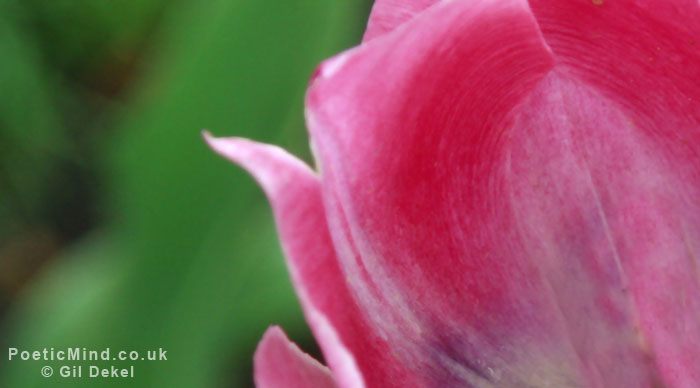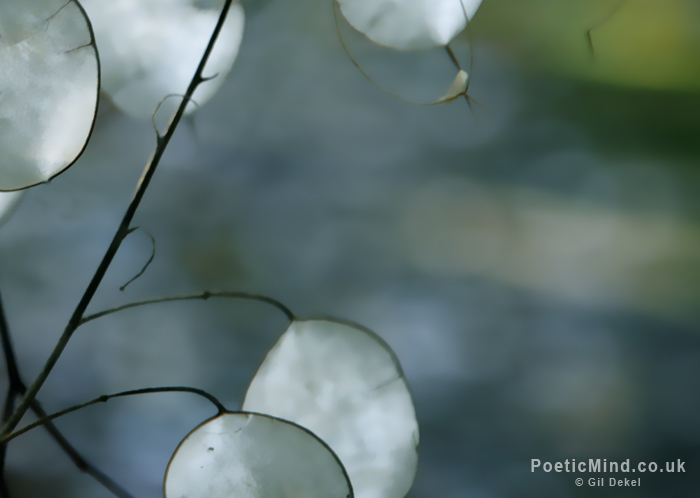Steve Harrison interviewed by Natalie Dekel. Part 1 of 5.
Natalie Dekel: what are the core beliefs that drive you?
Steve Harrison: Underneath everything, in the depths of us, in the heart of us – there is goodness and there is beauty and love. And when we open ourselves a little bit to this truth then this becomes more apparent.
Natalie: How do you open yourself?
Steve: Well, for us it is through yoga.
I think that essentially, as we live our life we learn to contract or to defend. There’s a mechanism, an activity within us that causes us to close in. This conceals that which is genuine to us or innately true in us.
So in yoga people are working to open up to release that contraction, release that mechanism. The body and the mind then soften enough and become less of a wall and more of a membrane through which what we truly are can move outwards into the world.
Do you think we only create this wall to protect ourselves?
It seems to be so, yes. When we come through into the world and we take a body, there’s somewhat an assumption in our consciousness that “I am the body.” And with this comes a sense of “I am then separate from everything that is not my body.” From this a wall of defense is built.
Aren’t we all born in our individual bodies? So in a way it is a kind of fact, isn’t it?
[Laughs] It’s a fact that we have a body but it’s not a fact that you are the body.
Why not?
It’s a fact that you have a mind and that you can witness your body, you can observe your body, you can watch your body, you can say “I have sensations in my body.” In fact, you can observe every quality of what it is to be in a body.
And you can do the same for your mind. You can watch your thoughts; you can watch your beliefs, you can watch your attitudes and your tendencies. There’s clearly someone present that is deeper than the faculties and the functioning of what you’re aware of.
The body is an addition to you; this is what you have taken in order to function and have an experience of the world.
But you can observe spiritual experience.
Absolutely; you can observe lights or auras or you can have mystical visions. But these are made in the experiential realm, which means there’s always somebody having a presence that is observing all those experiences.
So are we not that spirit that we see?
That spirit that we see? As in the experience?
According to physics, everything is made of energy. So I thought there’s a core of energy and then it becomes less and less solid; it is like gradation of shades of ‘solidness of energy’. So I figured that this force is us and that’s that spirit. If you see your aura or somebody else’s then this is us?
No… This whole mirage is going to come and go; it’s like your body is going to rise and fall – it’s going to rise out of something and into something. So perhaps the deeper question is: what does it arise out of and what does it return to?
You may have to have a look. It can only be you, can’t it? But not you as an identity or as a person but you as the substratum of life itself, out of which everything is moving, rising and falling.
That’s what we do in meditations?
Yes… I suspect people do meditation for all kinds of reasons. In the depths of it, it’s to return and to relapse back into yourself… or back into life and to disentangle from a fixed idea of ‘who I am’, as something that essentially I’ve manufactured or created with the help of society. And when I disentangle from that and fall back into the deeper sense of myself, then one returns to good humour and joy and happiness.
That will question your identity.
Yes.
And if we don’t have identity what’s the point having an existence of different people doing different things? What’s the point having manifestations as humans?
… why the need for a point?
Surely there is a point.
No… perhaps not from where the mind’s looking for a point. Rather than asking ‘what’s the point of it all’, maybe it’s enough in itself? to be alive, to be vital, to be experiencing; to be happiness itself. Why the need for a bigger thing than what’s already everything? Always looking for a point…
I think because we’re trained into a linear thinking, we can’t consider existence which is circular. We only keep thinking: what will be next or what has happened?
Yes.
So from that linear (and limited) perspective we have never evolved… Is there any way to evolve through yoga?
You learn what you are… You know that you are already life itself, and you are returning to a space of disentangling from your identity. Identity is what fixes us in a small container and keeps us very limited. We want to lose that, so we can experience or naturally intuit our vastness, our boundlessness…
This, I guess, you could call returning to our being or returning to present; returning to your true nature.
We have encapsulated within one’s true nature as a seed. It is an innate wish to open and grow and express and dance and manifest. It’s a natural kind of compulsion contained within consciousness itself, to open up and express the boundlessness of one’s nature in the manifest.
So in this way you can say that there’s an evolution of the expression of spirit, or an evolution in the expression of consciousness. It is boundlessly and eternally creating itself, expressing itself. Recognize your innate being-ness and then bring that through into the world in unbounded and uninhibited expression as a free and joyful being.
So if you want a point, I guess you could say that’s a point, but it doesn’t have a point as in there is no point to reach and say “That’s it, that’s the final point, now I’ve achieved, now I’ve learned, I’ve made my final expression.” Because it has no boundary to it.
The moment I say, “Ah, this is the point!” then I’ve just limited myself and boundlessness has become bound…
Yet, in the short space you do have a point, or targets, don’t you? When you do yoga postures and work with energy – that is a point, to try and reach, isn’t it?
It is but not as an end point in that unraveling. That experience is ongoing and deepening. It’s not a case of reaching a final point with that experience; rather it is constant.
End of part 1. Go to part 2. 3. 4. 5.
7 May 2014.
Exclusive publishing rights © Natalie Dekel and Gil Dekel. Images © Gil Dekel. Text editor: Gil Dekel.
Interview conducted on 29 April 2014 in Southampton. Steve is based in Southampton, UK. Natalie is based in the UK. Steve’s Website. Natalie’s website.




 - Reading with Natalie, book here...
- Reading with Natalie, book here...